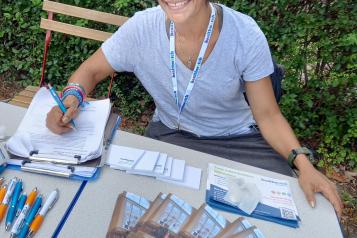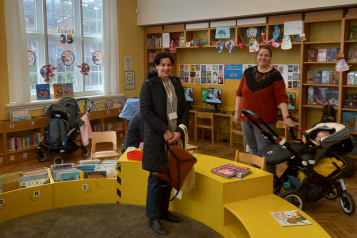Uncovering the Inequities: The Harsh Reality of Maternal Deaths in the UK

Imagine being pregnant and not having access to the healthcare services you need. Or feeling like your experiences and needs aren't being heard or addressed by the healthcare system. This is the reality for many women and birthing people, particularly those from marginalised communities. It's 2023, and we're still grappling with the shocking reality that maternal deaths in the UK, in part, depend on the colour of your skin. The Women and Equalities Committee has once again highlighted glaring disparities, revealing that black women are almost four times more likely to die from childbirth than their white counterparts. It's a devastating and unacceptable statistic that demands immediate attention and action.
But it's not just about race. It's also about socio-economic status. Women living in the most deprived areas are 2.5 times more likely to die during childbirth than those in the least deprived areas. This is a brutal reminder that the intersectionality of these issues cannot be ignored. Women from marginalised communities face multiple barriers to accessing quality healthcare and support, and these barriers must be addressed if we want to prevent further tragic losses.
It's time to confront the uncomfortable truths about our healthcare system and the systemic biases that still exist within it. The lives of mothers and their babies are at stake, and we cannot afford to look away any longer. We need to listen to the experiences of those who have been most affected and take concrete steps towards achieving true equity in maternal healthcare. Because every mother deserves to be safe and supported during one of the most vulnerable and transformative moments of their lives.
But change is possible, and it starts with initiatives like the one being undertaken by the South-East London Local Maternity and Neonatal System ( SEL LMNS) in partnership with Healthwatch Greenwich. SEL LMNS recognises that not all pregnant and postnatal women and birthing people have equal access to quality healthcare services, and that their experiences and perspectives are critical to the development and improvement of these services. That's why, by working with Healthwatch Greenwich, they're undertaking targeted community engagement to create an open dialogue between maternity services and those who use them. By listening to the experiences and needs of marginalised communities, such as asylum-seeking, refugee, and recently migrated women and birthing people, SEL LMNS will develop maternity services that are truly based around the needs of those who use them.
It's time for all women and birthing people to have access to the healthcare services they need and to be heard and respected throughout their pregnancy and postnatal journeys. SEL LMNS's initiative is a step in the right direction to create a more inclusive and equitable healthcare service.
Joy Beishon, CEO, Healthwatch Greenwich
If you’d like to know more about this project, contact us ‘jahan@healthwatchgreenwich.co.uk’


